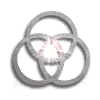 |
Ricardo B. Serrano, R.Ac. Click to Enter |
 |
 |
Ricardo B. Serrano, R.Ac. Click to Enter |
 |
|
William James "What is Neuro-linguistic programming? Why learn it? How was it developed?" you might have wondered.
How was NLP developed?
NLP is a collection of skills derived from studies of individuals generally acknowledged to be "super successes." These successful people had naturally created patterns of excellence in their lives and repeated them with consistent, positive results. These patterns of excellence have been translated into a synthesis of practical, reliable and learnable techniques called NLP.
NLP is a Synthesis A remarkable integration of several disciplines such as neurology, psychology, linguistics, cybernetics and systems theory, the name was chosen by the co-developers of NLP to reflect that unique synthesis.
Neuro Linguistic "Language as a means of perception, not as just a means of communication." - Julian Jaynes Programming NLP is used in the widest possible range of situations and personal concerns. New ways of thinking, reacting, relating and living are developed from the natural abilities you have within you.
Learn how to live up to your own potential and discover "states of excellence" as you gain rich and valuable insights into the limitless possibilities available in the communication processes of NLP.
Equally as important as realizing what NLP stands for is also the knowledge that NLP is:
An Attitude A Methodology A Technology What is so compelling about NLP?
NLP continues to be a source of motivation to the thousands who have benefited from its positive and far-reaching effects.
"It does offer impressive potential for making changes and improving communications. More compelling is the promise and example it allows for increasing options... and for enlarging choices of behaviour... (NLP) affords the opportunity to gain flexibility, creativity and therefore greater freedom of action than most of us know."
Training and Development Journal Mind and body are part of the same holographic cybernetic structure and anything that occurs in one part of the system will affect the whole.
What you know, think, remember, or imagine is the result of sequences and combinations of representational systems.
Your memory and your imagination use the same neurological circuits. Therefore, your representational systems consider both equal.
People have about seven (plus or minus two) "chunks" of conscious attentional span or short term memory at any given moment.
Experience and behaviour is a functional by-product of the filter system used.
There is a conscious and unconscious mind and both conscious and unconscious communication.
If it's possible in the world, it's possible for me. It's only a matter of "how".  |